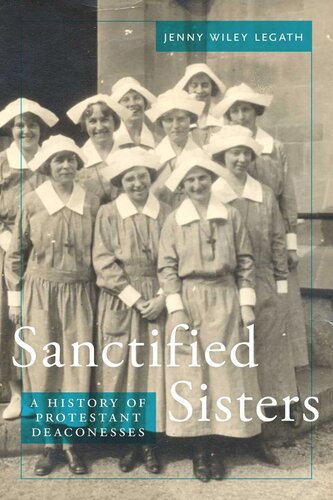

Most ebook files are in PDF format, so you can easily read them using various software such as Foxit Reader or directly on the Google Chrome browser.
Some ebook files are released by publishers in other formats such as .awz, .mobi, .epub, .fb2, etc. You may need to install specific software to read these formats on mobile/PC, such as Calibre.
Please read the tutorial at this link: https://ebookbell.com/faq
We offer FREE conversion to the popular formats you request; however, this may take some time. Therefore, right after payment, please email us, and we will try to provide the service as quickly as possible.
For some exceptional file formats or broken links (if any), please refrain from opening any disputes. Instead, email us first, and we will try to assist within a maximum of 6 hours.
EbookBell Team

5.0
88 reviewsThe first history of the deaconess movement in the United States
In the late nineteenth century, a new movement arose within American Protestant Christianity. Unsalaried groups of women began living together, wearing plain dress, and performing nursing, teaching, and other works of welfare. Modeled after the lifestyles of Catholic nuns, these women became America’s first deaconesses.
Sanctified Sisters,the first history of the deaconess movement in the United States, traces its origins in the late nineteenth century through to its present manifestations. Drawing on archival research, demographic surveys, and material culture evidence, Jenny Wiley Legath offers new insights into who the deaconesses were, how they lived, and what their legacy has been for women in Protestant Christianity.
The book argues that the deaconess movement enabled Protestant women—particularly single women—to gain power in a male-dominated Protestant world. They created hundreds of new institutions within Protestantism and created new roles for women within the church. While some who study women’s ordination draw a line from the deaconesses’ work to the struggle for women’s ordination in various branches of Protestant Christianity, Legath argues that most deaconesses were not interested in ordination. Yet, while they didn’t mean to, they did end up providing a foundation for today’s ordination debates. Their very existence worked to open the possibility of ecclesiastically authorized women’s agency.